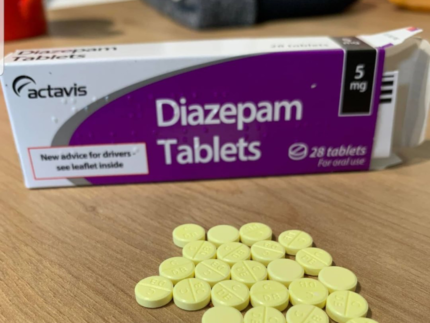

KETAMINE PILLS
£170.00 – £1,750.00Price range: £170.00 through £1,750.00
Ketamine Pills for Sale, Ketamine produces an abrupt high that lasts for about an hour. ketamine high, ketamine treatment, It starts around 2 to 5 minutes after the dose has been smoked or swallowed, ketamine and depression.
Buy Ketamine Pills Online
Ketamine Pills induce a rapid onset of euphoria lasting approximately one hour. The onset of the ketamine high typically occurs within 2 to 5 minutes after ingestion or inhalation, while with injection, it occurs within around 30 seconds.
The initial sensation of the high often entails a profound sense of relaxation, akin to a full-body buzz, with some users reporting feelings of floating or detachment from their bodies. Many also encounter hallucinations that may persist beyond the anesthetic effects. Ketamine’s potential in depression treatment has also been explored.
The FDA has approved ketamine for general anesthesia only, but the drug has some off-label uses. Details are below.
Inducing general anesthesia
Doctors use ketamine to induce general anesthesia alone or with other general anesthetics, such as nitrous oxide. They use it in the emergency department setting to produce short-term sedation whenTrusted Source:
- reducing fractures
- treating joint dislocations
- repairing wounds in uncooperative individuals, such as children
Learn more about general anesthesia.
Treating pain
Practitioners use low doses that do not produce dissociation to relieve severe pain from the followingTrusted Source conditions:
- trauma
- fractures
- abdominal pain
- arm or leg pain
- low back pain
Learn how to manage chronic pain here.
Treating status epilepticus
Status epilepticus is when a person has a seizure that lasts longer than 5 minutes or has more than one seizure within 5 minutes.
Refractory status epilepticus (RSE) is a form of status epilepticus that does not respond to standard antiseizure drugs. It is a severe disease that can cause brain damage and death.
A 2015 study found that ketamine may effectively treat RSE. However, further research is necessary to verify the study findings and prove the safety of using ketamine to treat this condition.
Learn more about epilepsy here.
Treating depression
Research in 2017Trusted Source notes that some studies indicate ketamine can quickly relieve depression in people who do not respond well to other treatment.
Despite these positive results, the authors warn that data on the use of ketamine for this condition are limited, so practitioners should consider the risks of the drug before prescribing it.
A 2016 studyTrusted Source cautions that the inappropriate use of ketamine is a worldwide health problem due to its hallucinogenic properties. With this in mind, they urge doctors to prescribe standard antidepressants before trying ketamine for depression.
Learn more about depression here.
Treating anxiety
Research on the use of ketamine for anxiety is scarce. However, one study suggests that it may help people with social anxiety disorder (SAD). This condition involves a marked fear of social situations.
The 2017 clinical trialTrusted Source tested the drug on 18 participants and concluded that it might effectively treat SAD.
Because several other trials indicate ketamine may have significant antianxiety effects, the authors encouraged future studies to explore this possible benefit more fully.
The most commonTrusted Source side effects of ketamine at prescribed doses include:
- drowsiness
- double vision
- confusion
- nausea
- vomiting
- dizziness
- feeling of unease
Ketamine can also produce an extensive array of other symptoms that affect many parts of the body, but they are less common.
Evidence shows that ketamine is safe for use in people within a wide age rangeTrusted Source when taken correctly.
However, ketamine is only safe when a person takes the drug their doctor has prescribed for a specific purpose.
Despite the general safety, ketamine has the following risks:
- Instability of heart and blood vessel function: This may include a temporary increase in blood pressure and heart rate or a decrease in blood pressure and heart rate. Abnormal heart rhythms may also occur.
- Respiratory depression: This can happen in an overdosage or if the rate of administration is rapid.
- Emergence reactions: Such reactions include agitation or confusion within the postoperative recovery period.
- Increase in intracranial pressure: Due to this effect, practitioners should closely monitor anyone who has high intracranial pressure.
- Liver injury: The administration of ketamine may cause liver dysfunction.
- Cognitive, or thinking, deficits: Some research reports that these effects occur in children.
Doctors do not recommend ketamine for people of any age who have conditions in which high blood pressure could lead to:
- aneurysm
- uncontrolled high blood pressure
- heart attack
- aortic tear
The drug is also not suitable for individuals with schizophrenia or who are pregnant or breastfeeding.
| Dosage |
200 mg ,300 mg ,500 mg ,1000 mg |
|---|---|
| QTY |
50 pills ,100 pills ,200 pills ,500 pills ,1000 pills |
UK SHIPPING
24 Hour Tracked & Insured - Usually delivered the next working day, Text & Email Tracking provided, no signature required
Delivery is charged at £10 & requires no signature, It is posted direct through your door (providing it fits) with proof of postage.
FREE SHIPPING on all orders over £600, It is posted direct through your door (providing it fits) with proof of postage.
- A Weekday Guaranteed Services will cost £6.99
- A Saturday Guaranteed Service will cost £10.99 (order MUST be received By Friday no later than 3:45pm)
Orders are delivered Monday - Saturday , We ship Monday - Friday
Guarantees are on Royal Mails part, We will dispatch on time!
Discreet and inconspicuous packaging on all orders.
INTERNATIONAL SHIPPING
*International Shipping Fully Insured and Trackable charged at an International Flat Rate Fee £9.50.
All international mail generally leaves the UK within 1 working day. Unfortunately we cannot predict how long purchases will be processed through networks abroad.
IMPORTANT: It is up to you the customer, not us, to determine whether any products you wish to order are legal in your country.
We cannot accept responsibility for any repercussions or replace any confiscations for any products brought from Champion Connects.
This applies to ALL international customers, we will send on the understanding all responsibility is held by you, the customer, & all laws respective of your country have been obeyed.






Reviews
There are no reviews yet.